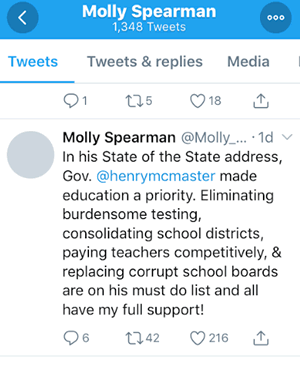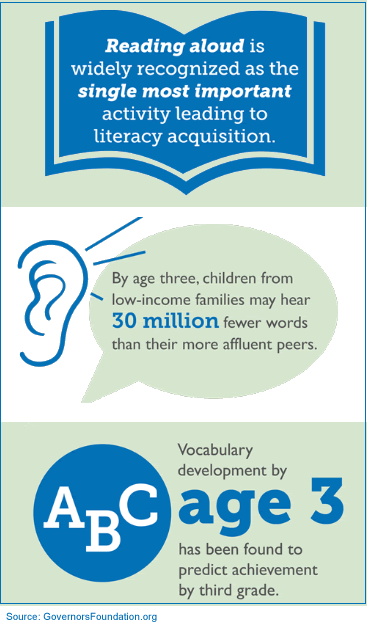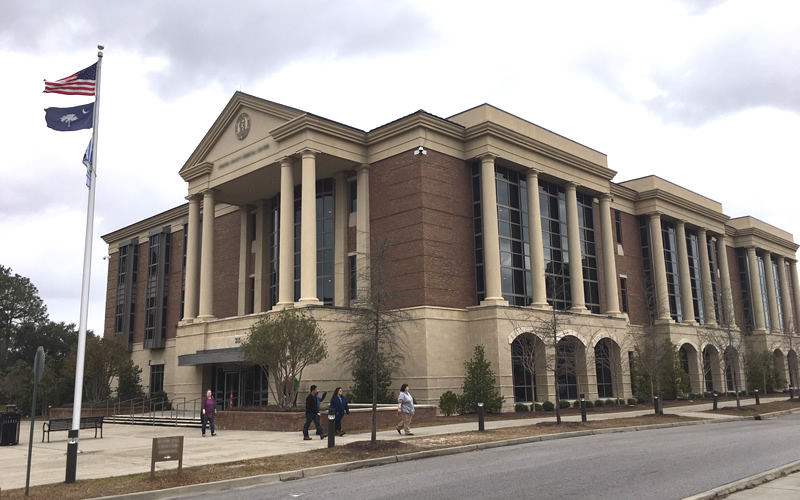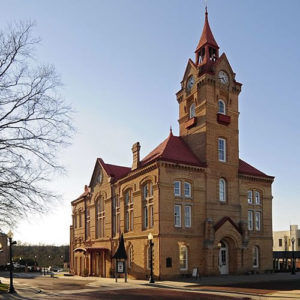NEWS: Senate poised to pass first education reform puzzle piece
BRIEFS: Life expectancy may be linked to neighborhoods, more
TALLY SHEET: Lawmakers file bills on education, animals, marriage, guns, more
COMMENTARY, Brack: Early books are first step to education reform success
SPOTLIGHT: ACLU of South Carolina
FEEDBACK: Reader thinks Nevada more important than S.C. in early voting
MYSTERY PHOTO: Imposing structure
S.C. ENCYCLOPEDIA: South Carolina’s opera houses
NEWS: Senate poised to pass first education reform puzzle piece

By Lindsay Street, Statehouse correspondent | Educators in South Carolina bogged down by paperwork soon could see some relief.
A joint resolution in the state Senate will require the state Department of Education to develop recommendations for reducing and streamlining the amount of paperwork and reporting required of teachers, schools, and school districts. It’s aimed at helping teachers stay on the job — a key component in a state where thousands have fled the profession.
“We have an incredible burden with paperwork,” Hand Middle School teacher Dottie Adams of Columbia told Statehouse Report this week. Adams is a board member with the grassroots organization pushing betterment for teachers in the state, SCforEd.
The third and final reading for S. 168 is expected when the Senate convenes 2 p.m. Tuesday. So far, the resolution has not incurred any debate. The sponsor, Senate Education Chair Sen. Greg Hembree, R-Horry, said he expects it to pass without much discussion. From there, it will need to be reviewed and passed by the House before heading the governor’s desk.
If passed, the state Department of Education is expected to come up with recommendations to the legislature by Jan. 15, 2020. According to a Revenue of Fiscal Affairs Office report dated Jan. 15, the resolution should not create any additional expense since the state Department of Education is already working towards the provisions of the resolution with their current data governance and monitoring processes.
The resolution was originally introduced in 2018 as part of the state’s annual budget. Hembree said it ended up getting slashed when the budget went into a joint compromise committee.
Other machinations
No other K-12 education bill is expected to pass either body next week, but there will be plenty of work in committees. Lawmakers have identified 2019 as the year of education.

On Thursday, House Speaker Jay Lucas, R-Hartsville, introduced a major education reform package. House Education and Public Works Committee member Rep. Lin Bennett, R-Charleston, said she expects the committee to begin work next week.
The massive 84-page reform package H. 3759 includes:
- Merging school districts that have fewer than 1,000 students, and dissolving school districts with multiple years of failing scores;
- Increasing salaries of first-year teachers by $3,000 (bringing them up to $35,000), phasing in a 10 percent raise for all teachers and replacing step increases with “career bands” that would reward teachers for their duties and performance;
- Eliminating some state-standardized tests in elementary schools; and,
- Publishing teacher satisfaction surveys of their schools and leadership there. Read more here.
Hembree introduced a similar bill, S. 419, in the Senate.
Lucas and his staff did not respond to requests seeking comment for this story. The ideas in the bill were similar to those laid out by Gov. Henry McMaster in his State of the State address Wednesday.
 On Thursday, state Superintendent of Education Molly Spearman released a statement in support of Lucas’ overhaul: “I want to applaud the media for continuing to shine a light on these issues and express my sincere appreciation to Speaker Lucas, Governor McMaster, and our General Assembly for putting these overdue and significant education reforms at the top of the agenda this year,” Spearman wrote in the statement. “I look forward to continuing to work together to pass the legislation needed for change so that our students can have the brightest future possible.”
On Thursday, state Superintendent of Education Molly Spearman released a statement in support of Lucas’ overhaul: “I want to applaud the media for continuing to shine a light on these issues and express my sincere appreciation to Speaker Lucas, Governor McMaster, and our General Assembly for putting these overdue and significant education reforms at the top of the agenda this year,” Spearman wrote in the statement. “I look forward to continuing to work together to pass the legislation needed for change so that our students can have the brightest future possible.”
Pay and performance
Adams, a middle school teacher, said she was worried about the Lucas bill’s language tying teacher pay to performance as well as a proposal for an education czar reporting to the governor (she said this would create duplicity with a voter-elected state superintendent). She added, however, that she did not have time to fully review the reform package.
Adams, her organization and the Palmetto State Teachers Association have pushed for a 10 percent pay increase for teachers in the state. The S.C. Education Association has advocated for a 5 percent pay raise. So far, introduced bills have included salary increases ranging from 5 to 20 percent, and another calls for bringing up the base teacher pay to $50,000 per year.
“We would definitely like to see that language (of salary increases) and that pushed by members of both the House and Senate as a sign that this is really the year of education and they are willing to support teachers in the classroom,” Adams said.
Consolidation

Merging districts is already on the docket in Senate Education Committee, and Hembree said it should be a heated discussion during next week’s meeting.
“There are people who feel very passionately about that concept or passionately against it,” he said. The meeting will take place Wednesday.
Adams said many other bills on her radar. She identified two in particular:
- S. 240 is in the Senate Education Committee. Introduced by Sen. Mike Fanning, D-Fairfield, the bill allows school districts to start earlier than the third Monday in August, which is currently mandated. Adams said this bill would allow high school teachers and students to finish their semesters prior to the winter break. She called it a “no brainer” bill that is nonpartisan and doesn’t cost any money.
- H. 3215 is in the House Education and Public Works Committee. Introduced by Rep. Neal Collins, R-Pickens, the bill would prevent school districts from retaliating against educators making public policy expressions or advocating for their profession. Adams said that while teachers like her and the organization are not against their school districts, “sometimes that gets misconstrued.”
“We at SCforEd, we are trying to be unifiers,” she said. “We need to come together as a state and make education a priority for every student and every school district.”
House Education and Public Works Chair Rep. Rita Allison, R-Spartanburg, did not respond to requests seeking comment.
- Have a comment? Send to: feedback@statehousereport.com
NEWS BRIEFS
BRIEFS: Life expectancy may be linked to neighborhoods, more

By Lindsay Street, Statehouse correspondent | It’s been said that your zip code is one of the best indicators of your health and life expectancy. Live Healthy South Carolina this week released its community health county snapshot reports that show life expectancy, health factors and outcomes.
The Alliance for a Healthier South Carolina led the development of Live Healthy South Carolina, with support from the S.C. Department of Health and Environmental Control and the S.C. Office of Rural Health.
One of the biggest takeaways on the life-expectancy maps was wide gaps exist for neighboring communities in several metropolitan areas, such as Charleston, Greenville and Columbia, In one neighborhood, for example, you may live to 81 years old, but if you cross the street or river in the same city, your life expectancy could be lower at 66 years old. See all of the reports here.
Here are a few snapshots from health outcome county maps:
- Beaufort County was ranked first for health outcomes and first for health factors. See the county map here.
- York County was ranked second for health outcomes and sixth for health factors. See the county map here.
- Charleston County ranked third health for outcomes and second for health factors. See the county map here.
- Other metros: Greenville County was ranked fourth in the state for health outcomes and third in the state for health factors. See the county map here. Richland County was ranked 12th for health outcomes and eighth for health factors. See the county map here.
- Rural outcomes: Allendale County ranked 43rd in health outcomes and 46th (last) in health factors, and Marlboro County ranked 46th in health outcomes and 45th in health factors.
In other recent news:
![]() How high? The Senate may be warming to use of medical marijuana in the state, while others raised eyebrows by invoking 1950s language that characterized marijuana “the most dangerous drug.” S.C. Attorney General Alan Wilson has since clarified a Wednesday statement to say it was dangerous due to being “misunderstood” and that he recognizes there is an opioid epidemic killing people. On Thursday, the Senate adopted a resolution calling on the Food and Drug Administration to remove barriers inhibiting research and development of medical marijuana. The resolution now goes to the House.
How high? The Senate may be warming to use of medical marijuana in the state, while others raised eyebrows by invoking 1950s language that characterized marijuana “the most dangerous drug.” S.C. Attorney General Alan Wilson has since clarified a Wednesday statement to say it was dangerous due to being “misunderstood” and that he recognizes there is an opioid epidemic killing people. On Thursday, the Senate adopted a resolution calling on the Food and Drug Administration to remove barriers inhibiting research and development of medical marijuana. The resolution now goes to the House.
Foster care. The Trump administration has granted a religious freedom waiver request for an Upstate fostering agency, which is now allowed to eliminate potential foster families on the basis of religion. Read the U.S. Department of Health and Human Service’s letter on the waiver here.
Tax credits, local government fund up next week. The House budget-writing committee will take up six bills during a full meeting upon adjournment of the House Jan. 29 in room 521 of the Blatt building. The agenda includes:
- 3135, allowing tax credits for military veterans;
- 3136, providing an exception needs tax credit (Read the fiscal impact statement here); and
- 3137, re-adjusting the local government fund formula and tying it to revenues (Read the fiscal impact statement here).
State of the State. Gov. Henry McMaster gave his view of the current state of South Carolina and outlined his ideas for the future during an address Wednesday. The speech focused on education and further economic development. Read full State of the State address here.
Child advocate. The state is one step closer to having a dedicated child advocate. Last week, the deadline closed for applicants seeking to become the state’s first child advocate, as set out by legislation last year. According to S.C. Sen. Katrina Shealy, R-Lexington, the state received 89 applications. The new state position is slated to begin July 1.
Weekly update on Palmetto Priorities
 Throughout the legislative session, we’ll provide you relevant updates related to our list of Palmetto Priorities, 10 big policy areas where major progress is needed for South Carolina to escape the bottom of lots of lists. Over the last week:
Throughout the legislative session, we’ll provide you relevant updates related to our list of Palmetto Priorities, 10 big policy areas where major progress is needed for South Carolina to escape the bottom of lots of lists. Over the last week:
Taxes. The Tax Foundation released rankings of highest and lowest tax collections per capita by state. South Carolina came in as one of the lowest tax collections per capita at $3,435. It was in the company of Alabama, Tennessee, Oklahoma and Florida. The states with the highest per capita taxes included: New York ($8,957), Connecticut ($7,220), New Jersey ($6,709), North Dakota ($6,630) and Massachusetts ($6,469). Read more.
Guns. Two new Senate bills introduced this week took very different paths on guns. S. 400 (Grooms) seeks to allow a constitutional gun carry act and to change rules on concealed weapons, with several provisions. S. 423 (Hutto) would make it unlawful for a person to possess a firearm within 1,000 feet of a school or college or publicly-owned building, without permission.
Meanwhile, a Charleston symposium on the Second Amendment will be held Feb. 8. The 11th annual Law & Society symposium, presented at the Charleston School of Law with the Riley Institute at Furman University, will include panels to focus amendment’s strengths, interpretations, ethics and gun policy. To kick off the symposium, two Duke University law school professors will examine the second amendment as “Positive Law” and discuss how the amendment can be used to help curb violent crimes like mass shootings. Learn more and register here.
Looking ahead
Click below for other items coming up in the Statehouse:
- House calendar
- Senate calendar
- Have a comment? Send to: feedback@statehousereport.com
TALLY SHEET: Lawmakers file bills on education, animals, marriage, guns, more
Members of the General Assembly filed 140 bills and resolutions over the last week. Among the highlights:
IN THE HOUSE
![]() Teacher pay. H. 3680 (Herbkersman) seeks to pay new teachers at least $50,000 a year in the next school year and current teachers no less than $60,000 annually, with several provisions. S. 3689 (R. Williams) seeks to give any school district employee who earns less than $25,000 a year with a permanent 5 percent annual salary increase.
Teacher pay. H. 3680 (Herbkersman) seeks to pay new teachers at least $50,000 a year in the next school year and current teachers no less than $60,000 annually, with several provisions. S. 3689 (R. Williams) seeks to give any school district employee who earns less than $25,000 a year with a permanent 5 percent annual salary increase.
Education reform H. 3756 (Lucas) seeks to direct the state to develop a report on new funding models for state and local schools, with several provisions. H. 3757 (Lucas) seeks to establish the Workforce and Education Data Oversight Committee, with several provisions. H. 3759 (Lucas) calls for the S.C. Career Opportunity and Access for All Act to provide statewide college and career readiness goals for 2030, a Student Bill of Rights and dozens of other provisions in a bill that’s more than 80 pages long. S. 419 (Hembree) is similar.
Seawalls. H. 3700 (Bailey) would change erosion control law to allow “shoreline perpendicular wingwalls” along the shore, with some other provisions.
Animal cruelty. H. 3702 (Hill) would prohibit a person convicted of a repeat offense of animal cruelty from owning an animal for up to five years. S. 407 (Gambrell) is similar.
Infants, fetuses. H. 3729 (Fry) is a bill related to mandatory reporting of suspected child abuse or neglect that would “require reporting when an infant or fetus is exposed to alcohol or controlled substances.”
State of the Judiciary. H. 3747 (Lucas) seeks to set noon Feb. 27 as the annual State of the Judiciary address.
Net metering. H. 3748 (Loftis) would revise net metering rates for power generation with several provisions.
Santee Cooper H. 3751 (Clary) seeks to end terms of current Santee Cooper board members and allow for appointment of new members with certain qualifications, with several provisions.
IN THE SENATE
Primaries. S. 389 (Rice) seeks to restrict political primaries to people in the party by starting voter registration by party, with several provisions.
Marriage. S. 395 (Hutto) would make the minimum age for marriage to be 10, with several provisions.
Tobacco. S. 396 (Hutto) would seek to restrict access to tobacco and alternative nicotine products to minors by changing rules on which stores they could enter, with several provisions.
Guns. S. 400 (Grooms) seeks to allow a constitutional gun carry act and to change rules on concealed weapons, with several provisions. S. 423 (Hutto) would make it unlawful for a person to possess a firearm within 1,000 feet of a school or college or publicly-owned building, without permission.
BRACK: Early books are first step to education reform success

By Andy Brack, editor and publisher | If you want real education reform, give a free book a month to every child under five in South Carolina.
 It’s a common-sense, quick, practical, affordable and proven investment that can make more of a difference than most of the fiddle-faddle in thick policy papers. It’s low-hanging fruit. And it’s easily achievable because there’s a delivery network already in place. It’s something Gov. Henry McMaster and legislators like GOP House Speaker Jay Lucas and Democratic Sen. Vincent Sheheen should embrace now.
It’s a common-sense, quick, practical, affordable and proven investment that can make more of a difference than most of the fiddle-faddle in thick policy papers. It’s low-hanging fruit. And it’s easily achievable because there’s a delivery network already in place. It’s something Gov. Henry McMaster and legislators like GOP House Speaker Jay Lucas and Democratic Sen. Vincent Sheheen should embrace now.
Providing free, age-appropriate books to children under 5 nourishes them at the critical time their brains are developing. Building small libraries in the homes of young families in South Carolina is an investment that can propel South Carolina forward from its terminal bottom ranking in education.
Mailing monthly books to kids is working now. It got started 22 years ago in Tennessee with the creation of Dolly Parton’s Imagination Library. Since then, the program mails more than a million books to children all over the world.
Patty Bennett-Uffelman of Charleston knows the program is working. Her organization, Begin with Books, sends books monthly to more than 4,800 children in Charleston County through the Imagination Library. She recalls a mother who approached her with a 5-year-old girl who received “Goodnight, Gorilla” through the program. The girl hugged the book and the mother shared how “gorilla” was the girl’s second word – just after “mama.”
 “The mere presence of books in the home generates an enriched vocabulary, enriched conversation, and is more likely to introduce more formal sentence expression in low-literacy homes,” Bennett-Uffelman told us.
“The mere presence of books in the home generates an enriched vocabulary, enriched conversation, and is more likely to introduce more formal sentence expression in low-literacy homes,” Bennett-Uffelman told us.
Studies show Tennessee participants “significantly outperformed non-participants on kindergarten literacy assessments,” according to the Palmetto Project. “They maintained that edge through the third grade, and even into high school.” The evidence showed elementary school assessments of participants that were 7 percent higher than non-participants.
Currently, the Palmetto Project operates a program that sends an additional 31,000 books to children under 5 into 33 other counties across the state, including Horry, where Parton pays for that county’s 7,721 kids to get early books.
Steve Skardon, head of the organization, says children who get the free books are one-third more likely to be kindergarten-ready. They are much more likely to have better skills for oral communication, written language and math. And parents in the program are three times more likely to read to their children, a key for early learning and vocabulary achievement.
“This is not about teaching children to read,” Skardon says. “It’s about growing their intellectual capacity to read in the future during those early years when it matters.
“Never has there been so much evidence that traditional thinking about early literacy is wrong. Yet, we continue to teach reading the way we did generations ago and somehow expect to get different outcomes.”
While 36,000 children under 5 are participating in the program thanks to volunteers, nonprofits, service clubs and donors, there’s not enough funding to pay for the remaining 250,000 S.C. children to get a free book once a month. The annual cost per child is $33, including books and postage.
The Palmetto Project estimates the cost to make the program available to all children – only about two-thirds of whom would be expected to enroll – would be about $6 million a year. And all that the state would have to do would be to write an annual check. It wouldn’t have to hire any other employees or put a burden on state agencies because the delivery and logistics network is in place.
Expanding the Imagination Library statewide is reasonable, affordable no-brainer. It’s the perfect investment to prepare children, particularly those in low-income families, to learn at the time it is most critical in their development. And if they don’t get this intellectual fertilization? They won’t be as ready as they could be for school and will start out behind, just like they do today.
North Carolina has committed to $10.5 million a year to fund the Imagination Library. Arkansas is organizing an $8 million foundation to kick it off. Can’t South Carolina adopt this practical education strategy to nurture children so they can be ready to learn when they get to school?
- Have a comment? Send to: feedback@statehousereport.com.
SPOTLIGHT: ACLU of South Carolina
 The public spiritedness of our underwriters allows us to bring Statehouse Report to you at no cost. This week’s spotlighted underwriter is the American Civil Liberties Union. The ACLU of South Carolina is dedicated to preserving the civil liberties enshrined in the U.S. Constitution and Bill of Rights. Through communications, lobbying and litigation, the ACLU of South Carolina works to preserve and enhance the rights of all citizens of South Carolina. Foremost among these rights are freedom of speech and religion, the right to equal treatment under law, and the right to privacy.
The public spiritedness of our underwriters allows us to bring Statehouse Report to you at no cost. This week’s spotlighted underwriter is the American Civil Liberties Union. The ACLU of South Carolina is dedicated to preserving the civil liberties enshrined in the U.S. Constitution and Bill of Rights. Through communications, lobbying and litigation, the ACLU of South Carolina works to preserve and enhance the rights of all citizens of South Carolina. Foremost among these rights are freedom of speech and religion, the right to equal treatment under law, and the right to privacy.
FEEDBACK: Reader thinks Nevada more important than S.C. in early voting
To the editor:
![]() As a resident of Nevada the last three years, I want to highlight that Nevada is the most diverse and informed state to hold a party election for president!
As a resident of Nevada the last three years, I want to highlight that Nevada is the most diverse and informed state to hold a party election for president!
We are the first state in history to have a majority female legislature and state Supreme Court! I would also submit that caucus voters are much more informed about the issues than primary voters.
I am also glad that in Nevada, like New Hampshire, there are no state income tax states which should help to keep tax and spend candidates of both parties in check!
— Will Bradley, Las Vegas, Nevada
Editor’s note; We disagree heartily. S.C. rocks. See column
Send us your thoughts … or rants
We love hearing from our readers and encourage you to share your opinions. But you’ve got to provide us with contact information so we can verify your letters. Letters to the editor are published weekly. We reserve the right to edit for length and clarity. Comments are limited to 250 words or less. Please include your name and contact information.
- Send your letters or comments to: feedback@statehousereport.com
MYSTERY PHOTO: Imposing structure

This imposing structure is quite visible in a South Carolina community. But what and where is it? (Some identifying features have been blurred.) Send your guess to feedback@statehousereport.com. And don’t forget to include your name and the town in which you live.
Our previous Mystery Photo
 Our Jan. 18 mystery, “Lots of pretty lights at night,” looked like something from Disney World to several readers. But it wasn’t. Instead, it was a colorful night display of the BAPS Shri Swaminarayan Mandir Hindu temple in Lilburn, Ga., in a photo offered recently in our sister publication, Gwinnett Forum.
Our Jan. 18 mystery, “Lots of pretty lights at night,” looked like something from Disney World to several readers. But it wasn’t. Instead, it was a colorful night display of the BAPS Shri Swaminarayan Mandir Hindu temple in Lilburn, Ga., in a photo offered recently in our sister publication, Gwinnett Forum.
Only three readers identified the temple – and a big tip of the hat for good sleuthing to Don Clark of Hartsville; David Lupo of Mount Pleasant; and George Graf of Palmyra, Va.
Graf provided more context: “Interesting writeup from roadsideamerica.com: This site is beautiful and inspiring, and they do allow you to go in. No need to look on from the parking lot, everyone there was kind and welcoming and directed us right to the main temple/shrine. They even have a tour set up through the book store/gift shop.
“The temple is actively used for worship. We saw numerous devotees of all ages at prayer. Signs remind you to be quiet…something to think about if bringing kids. On the way out, just as we were leaving, spotted the sign to the food court to the right of the exit and opted not to turn around (a lot of miles still to cover), but so do love Indian food.”
- Send us a mystery: If you have a photo that you believe will stump readers, send it along (but make sure to tell us what it is because it may stump us too!) Send to: feedback@statehousereport.com and mark it as a photo submission. Thanks.
S.C. ENCYCLOPEDIA
HISTORY: South Carolina’s opera houses
S.C. Encyclopedia | In the period between 1880 and 1920, opera houses flourished in communities across South Carolina. Beginning in the 1880s, as the state recovered from the Civil War, opera houses provided live entertainment for citizens who were able to afford leisure activities. By 1915 there were opera houses in Columbia, Sumter, Greenville, Florence, Newberry, Darlington, Laurens, Marion, Abbeville, and Bishopville, among other communities.
 Especially in the larger towns, opera houses were imposing, architecturally distinctive buildings with elaborate interiors. Newberry’s three-story brick opera house, featuring a bell tower, was constructed in 1882. Sumter’s 1893 opera house was a three-story, Richardson Romanesque stone structure with a one-hundred–foot clock tower. Columbia’s second opera house, built in 1900, was three stories with two towers. It had a large stage, concealed overhead machinery for curtains and scenery, an orchestra pit, spectator boxes, and two galleries. In smaller communities, opera houses were more modest and often located on the second floor of multi-purpose buildings. For example, the opera house in Laurens was situated above the city hall, and Marion’s opera house was on the second floor of a building that housed the courtroom, jail, and fire department on the first floor.
Especially in the larger towns, opera houses were imposing, architecturally distinctive buildings with elaborate interiors. Newberry’s three-story brick opera house, featuring a bell tower, was constructed in 1882. Sumter’s 1893 opera house was a three-story, Richardson Romanesque stone structure with a one-hundred–foot clock tower. Columbia’s second opera house, built in 1900, was three stories with two towers. It had a large stage, concealed overhead machinery for curtains and scenery, an orchestra pit, spectator boxes, and two galleries. In smaller communities, opera houses were more modest and often located on the second floor of multi-purpose buildings. For example, the opera house in Laurens was situated above the city hall, and Marion’s opera house was on the second floor of a building that housed the courtroom, jail, and fire department on the first floor.
“Road shows” that traveled the country provided dramatic productions, musical comedies, operas, minstrel shows, and other live entertainment. Columbia’s opera house booked Broadway hits and stars such as Sarah Bernhardt, Ethel Barrymore, Lillian Russell, and Nat Goodwin. Even in a smaller community such as Abbeville, special trains brought theater patrons from nearby towns to see traveling shows such as the Klansman, Yankee Drummer, the Ziegfield Follies, or an escape artist. The Marion Opera House featured traveling theatrical companies as well as local talent.
By the 1930s the new sound movies had eclipsed live entertainment, and some of the opera houses converted to motion picture theaters. By 1941 South Carolina: A Guide to the Palmetto State reported, “Most of the old opera houses in the State have now been pre-empted for movie theatres.” In the decades after 1930 most of the opera houses in the state were demolished. A few survived, however, and in the last decades of the twentieth century several of them were restored, including the Abbeville Opera House, the Sumter Opera House, the Marion Opera House, and the Newberry Opera House.
— Excerpted from an entry by Mary W. Edmonds. This entry may not have been updated since 2006. To read more about this or 2,000 other entries about South Carolina, check out The South Carolina Encyclopedia, published in 2006 by USC Press. (Information used by permission.)
ABOUT STATEHOUSE REPORT
Statehouse Report, founded in 2001 as a weekly legislative forecast that informs readers about what is going to happen in South Carolina politics and policy, is provided to you at no charge every Friday.
- Editor and publisher: Andy Brack, 843.670.3996
- Statehouse correspondent: Lindsay Street
More
- Mailing address: Send inquiries by mail to: P.O. Box 22261, Charleston, SC 29407
- Subscriptions are free: Click to subscribe.
- We hope you’ll keep receiving the great news and information from Statehouse Report, but if you need to unsubscribe, go to the bottom of the weekly email issue and follow the instructions.
- © 2019, Statehouse Report. All rights reserved.
















 We Can Do Better, South Carolina!
We Can Do Better, South Carolina!